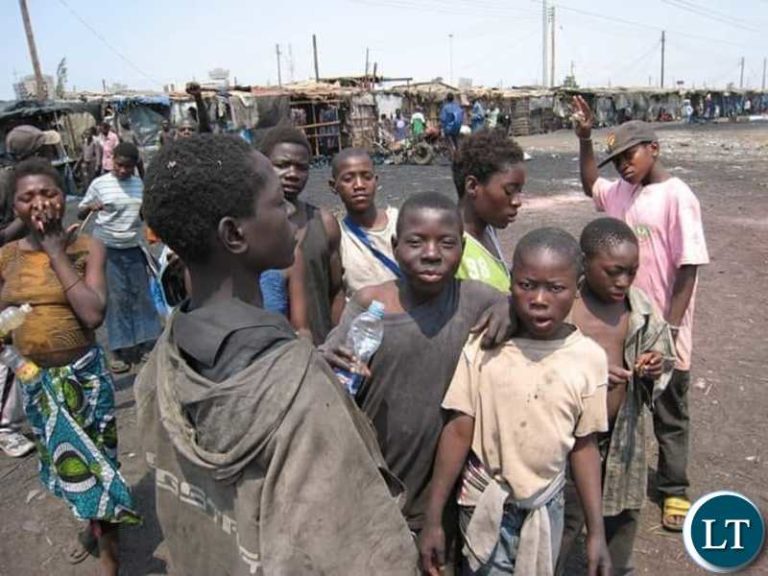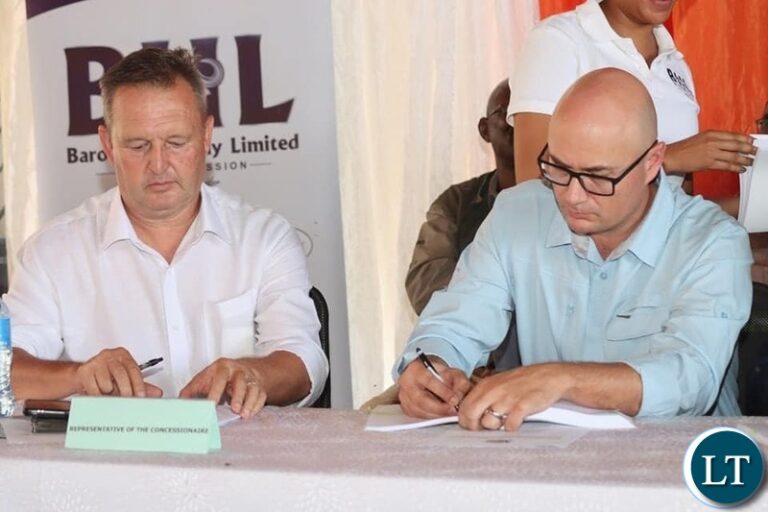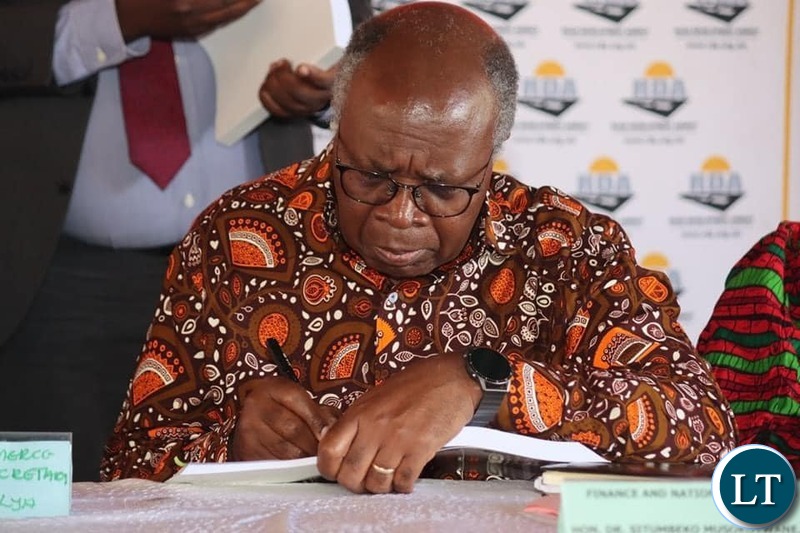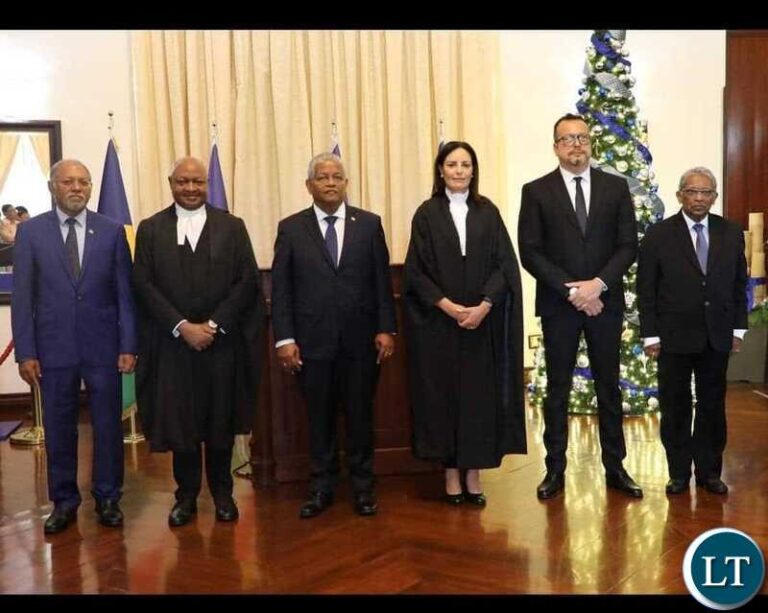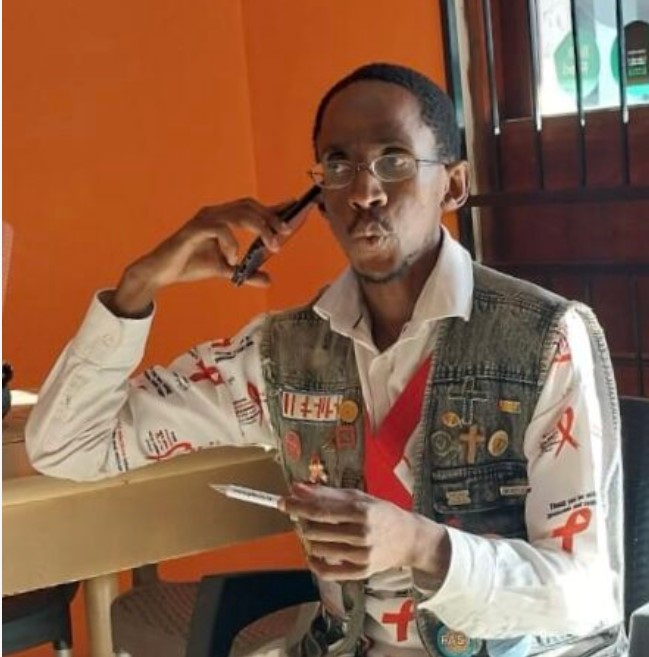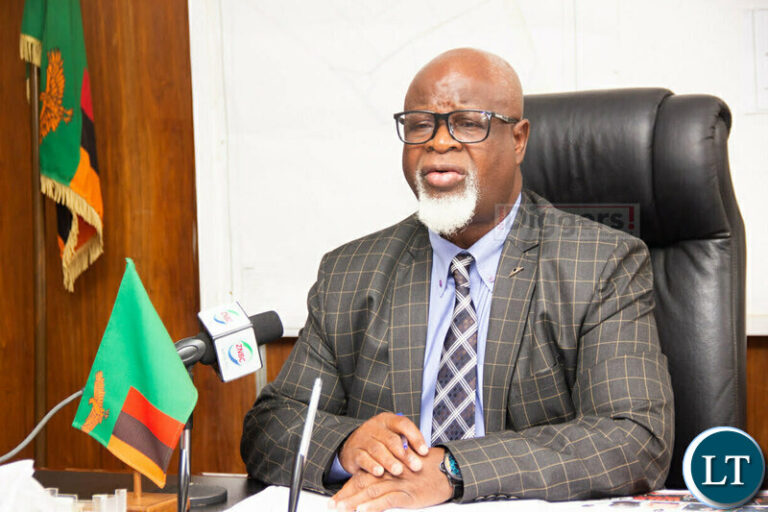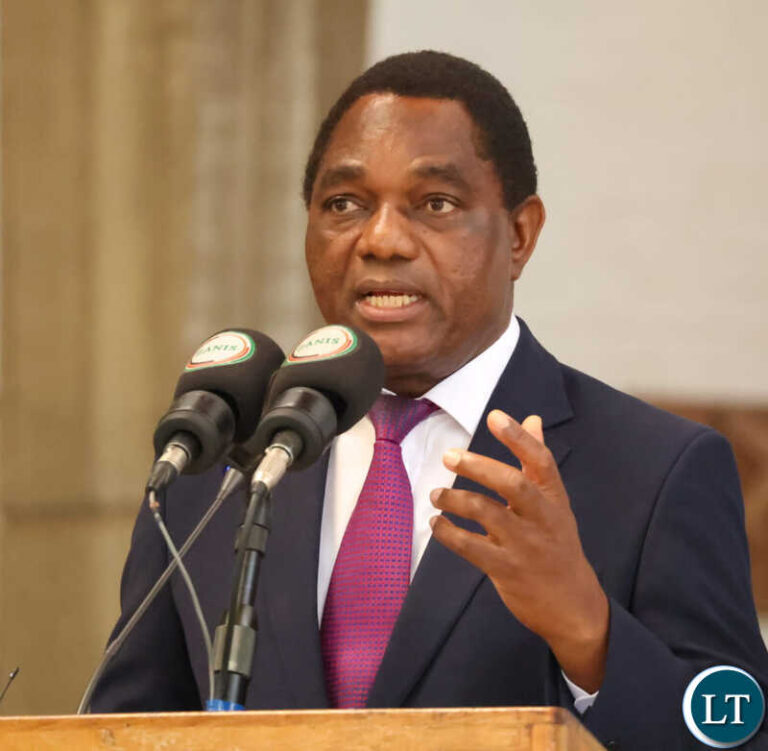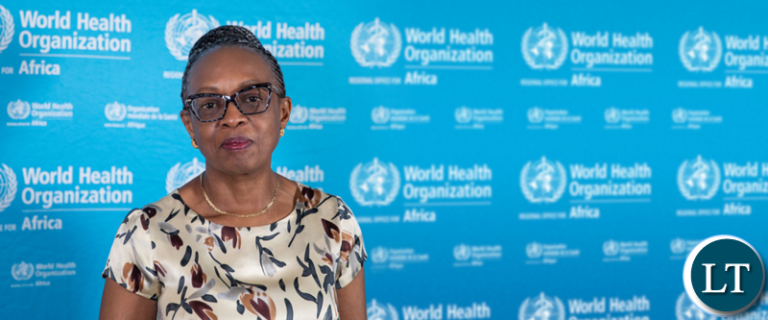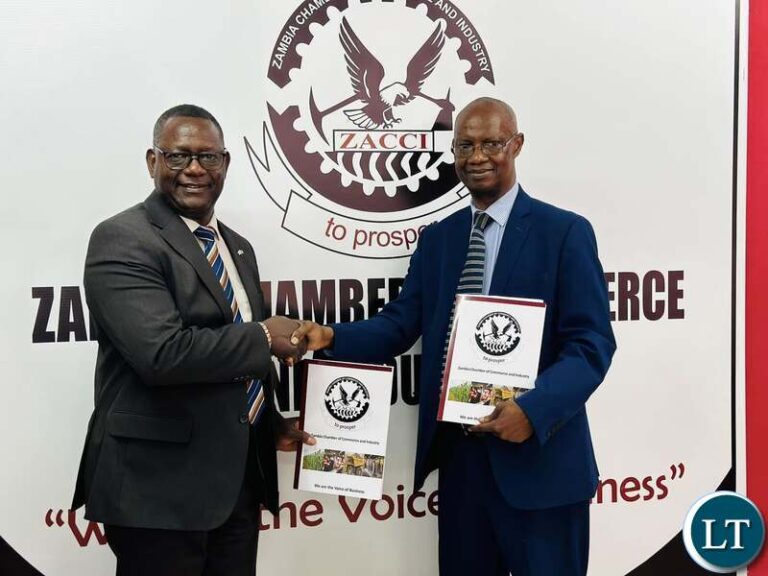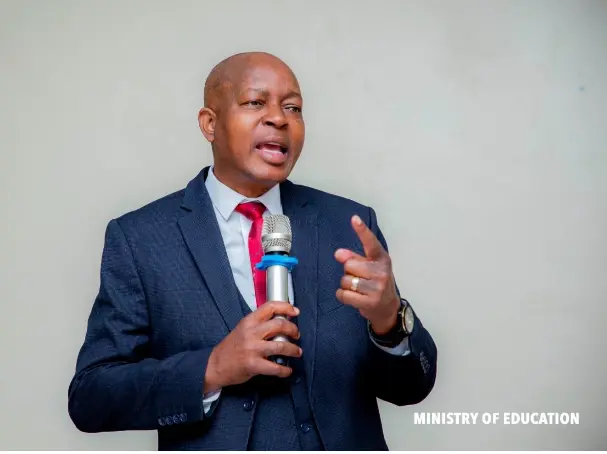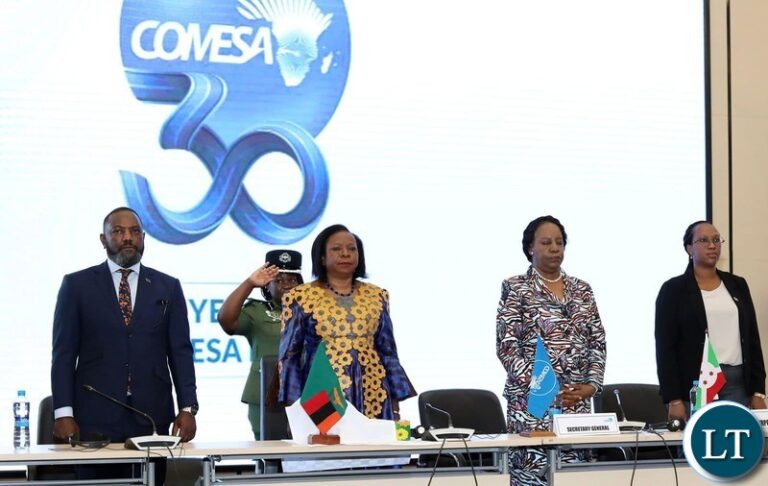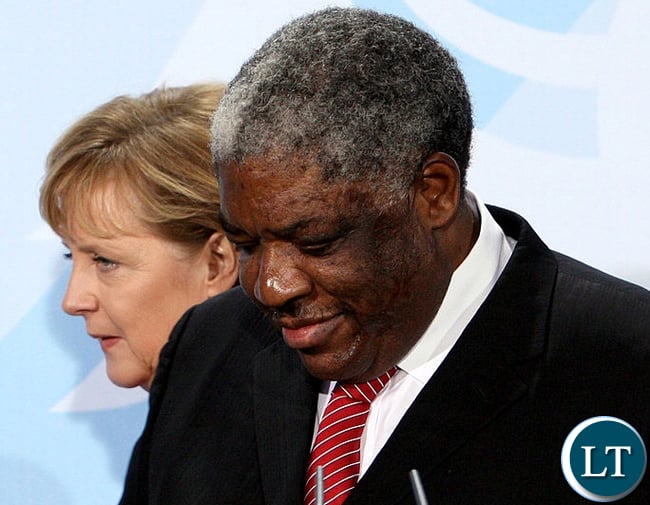Micro and Small Enterprises (MSEs) Graduation to formal Sector is quickest Solution to Economic Transformation and Job Creation
By Mwansa Chalwe Snr
Zambia Chamber of Commerce and Industry’s (ZACCI) recent announcement to launch an innovative and ground breaking project in 2025, aimed at reducing Zambia’s informal sector by formalizing Micro and Small Enterprises (MSEs),presents a long-overlooked solution to many of the country’s economic challenges. The initiative is a potential game changer as it is capable of changing Zambia’s current economic structure. This Project directly and practically addresses one of the four pillars of the National Development Plan 8: Economic Transformation and Job Creation.
According to ZACCI President Anthony Kabaghe, this multifaceted project is designed to expand Zambia’s private sector, bolstering private sector development and increasing the Chamber’s membership. More significantly, the project is expected to accelerate economic growth into double digits, create millions of jobs, and address a multitude of economic issues facing the country in a relatively short time frame. This claim gains credibility from the experiences of Latin American countries that implemented similar initiatives in the early 2000s.
CONCEPT OF FORMALIZATION
The concept of formalization in Zambia is totally misunderstood by many people including government officials. There is a fallacious belief that formalization entails registration of a business with the Patents and Companies Registration Authority (PACRA).The reality is that the simplification of registration is one the minor steps and the least effective of the formalization value chain. Formalization of informal economy is a complex phenomenon, which cannot be solved without extensive and painstaking research. Sustainable and effective formalization is multifaceted and entails many factors such regulations, taxation, sector demographics and many more variables, which cater for current and future informal sector players. It boils down to the cost –benefit analysis by the informal sector entrepreneurs. ZACCI through its research, has developed an innovative “7Ms formalization” model which it will deploy in its implementation of the project..
ZAMBIA INFORMAL ECONOMY SIZE
The huge size of Zambia’s Informal economy has never been recognised as a major problem for the economy by the various administrations and its Cooperating Partners.They have ignored it as a problem worth actively and formally focusing on. And yet, the informal sector makes up approximately 90% of the total economy, according to International Labour Organization( ILO) estimates of Sub Saharan countries informal economy. This means all previous and current planning strategies are based on the 10% of the economy. There can be no meaningful development that can take place when 90% of the economy is effectively left out.
SUPPORT FOR INFORMAL SECTOR REDUCTION
There is overwhelming empirical evidence that shows that there is a correlation between the size of the informal economy and the level of a country’s development and its poverty levels. The available empirical evidence clearly show that in order to achieve inclusive growth, create jobs and reduce poverty, a nation has to reduce the size of its informal sector. The issue of reducing the informal sector through formalization is supported by many international organizations including the International Monetary Fund (IMF), World Bank, International Labour Organization, Organisation for Economic Cooperation and Development (OECD) and many others.
“Informality critically affects how fast economies can grow, develop, and provide decent economic opportunities for their populations. Sustainable development requires a reduction in informality over time. Economic growth in regions or countries with large informal sectors remains below potential.Addressing informality is thus essential and urgent to support inclusive economic development and reduce poverty worldwide,” IMF, Finance and Development Magazine (December, 2020) wrote.
The International Labour Organization (ILO) also recommends countries to try out solutions to reduce the size of their informal sectors. Informality restricts economic growth, promotes inequality in general, and gender inequality in particular, promotes poor labour conditions, engenders low productivity and denies the country tax revenues.
“In sub-Saharan Africa, typically, the formal segment of the economy does not employ more than 10 per cent of the labour force. Addressing the challenge of the informal economy and poverty reduction are therefore closely intertwined. There is an urgent necessity of implementing a range of integrated and coherent policies aimed at moving economic units into the mainstream economy,” The ILO wrote in its research paper, The Informal Economy: Enabling Transition to Formalization (2007).
It is clearly evident that all reputable International organizations do support and recommend formalization of the Informal Sector. It follows, therefore, that ZACCI is on firm grounds to lead the formalization process in Zambia, and it is imperative that the government and its agencies team up with ZACCI on this economic structure transformational project. Furthermore, all empirical evidence suggests that no development can take place when the Informal economy in a country is larger than the formal economy, regardless of the progressive policies that a country may pursue.
PROJECT EXPECTED IMPACT AND BENEFICIARIES
ZACCI’s formalization initiative is poised to have a profoundly transformative impact on the Zambian economy and complement many government programs such as the IMF reforms under the Extended Credit Facility(ECF) Program.
The formalization initiative has far-reaching benefits, impacting various stakeholders across the country. Zambia as a whole will experience double digits economic growth. There will be mass job creation and poverty reduction as informal businesses transition to formal entities. The project’s innovative “7Ms formalization model” estimates to formalize a minimum of 500,000 firms which are expected to employ an everage of a minimum of 3 jobs each, resulting in over 1.5million formal jobs created.
The project will also drive export promotion and import substitution, and most importantly, foster economic diversification all in a very short period of time. Informal entrepreneurs will witness substantial growth in their businesses and enjoy improved standards of living.
Meanwhile, ZACCI will see an increase in membership, bolstering its representation and advocacy efforts. The Ministry of Finance and Zambia Revenue Authority (ZRA) will benefit from a broadened tax base, enhancing revenue collection and positively impact metrics like Debt/ GDP ratios .The Bank of Zambia will achieve greater financial inclusion, expanding access to financial services for previously underserved segments.
Additionally, the Patents and Companies Registration Agency (PACRA) and Ministry of Commerce will observe a notable increase in registered businesses. National Pensions and Social Security Authority (NAPSA) will see increased membership. Lastly, the Citizen Empowerment Commission(CEEC) and Ministry of Small and Medium Enterprises will witness a thriving entrepreneurial ecosystem, fostering innovation and self-sustenance.
LATIN AMERICA, A FORMALIZATION BENCHMARK
ZACCI and its Strategic Partners gathered evidence by researching Latin America’s successful formalization programs where they drew inspiration from as they successfully implemented similar initiatives in the early 2000s. The research offered the Chamber valuable insights which informed the design of the tailor made formalization project for Zambia.
In the 1990s and early 2000s, Latin American countries realized that after over seventy years of aggressive promotion of foreign direct investments(FDI), the strategy did not result in inclusive growth, create sufficient jobs or reduce poverty, and in fact, in some cases, there are studies that found that FDI exacerbated income inequality and poverty, if not managed properly. They decided to revaluate their strategies by focusing on internal solutions which included formalization of MSEs.
There are various studies that have been carried out by various organizations including International Labour Organization(ILO) on Latin American countries-Argentina, Bolivia, Brazil, Colombia, Mexico, Panama, Peru and Uruguay – on the formalization process which happened between 2005 to 2015.These countries reduced informality and experienced significant economic growth,creating employment and reducing poverty. The level of success varied depending on a number of factors such as: policies, formalization strategies, structure of economy and political will.
“Almost all countries in Latin America have decreased their informal employment rates but this formalization process has not been uniform. In some countries, processes were faster and took a relatively short time. In others, progress has been slower,” ILO Report on Latin America Formalization said. “To reduce informality, it is necessary to implement deliberate and integrated economic, social and labour policies and actions”.
The formalization Programs that Latin American countries carried out were very similar. Brazil’s implemented Microempreendedor Individual (MEI) program and SuperSimples. Mexico, on the other hand, implemented the Programa de Microcréditos and Sistema de Apoyo al Desarrollo Empresarial (SADE), while Chile rolled out ChileCrece and Sistema de Formalización Empresarial (SIFE) programs. Columbia, Peru, Panama, Uruguay and others implemented similar programs.
CONCLUSION
The Zambian government is urged to embrace and collaborate with the Zambia Chamber of Commerce and Industry (ZACCI) in its Formalization initiative. This multifaceted initiative promises a transformative change, elevating Zambia’s economic landscape and empowering its citizens. The innovative approach is backed by empirical evidence, supported by reputable international organizations and proven successful in other countries. It has the potential to revolutionize the Zambian economy. It offers a timely solution to several pressing economic challenges facing the nation, particularly in addressing the pressing issue of youth unemployment. It is capable of creating critical mass jobs because one of its components has the Artificial Intelligence (AI) chatbot technology to provide digital management and financial literacy mentorship to Entrepreneurs which has never been done before in Zambia.
At the moment, there is no proven economic solution to Zambia’s current economic problems whether foreign inspired or home grown, that can surpass the formalization of Micro and Small enterprise (MSE) initiative in terms of its multifaceted impact in a very short space of time. The potential public-private partnership could unlock significant potential and position Zambia as an economic powerhouse in the region.
The Writer is a Chartered accountant, author and independent financial analyst, and economic Commentator.



